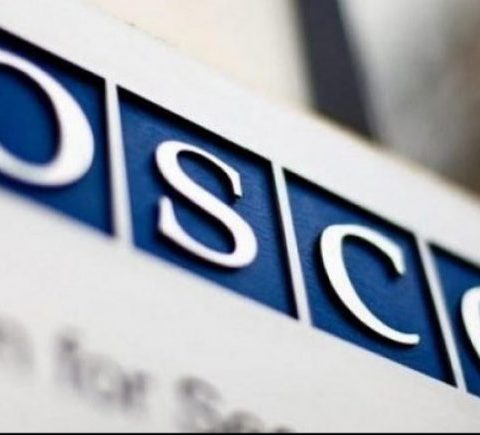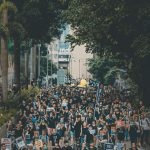By Rudina Hoxha
Vera RemŠ›kar, Executive Director of the Foundation “Together Albania” (www.nukjevetem.al), specialized in offering online counseling for the youngsters with different emotional problems, is making a big difference in the Albanian and Kosovo societies. She is a mover and shaker. At last, the youngsters are asking for help online when they feel pain, isolation or grief and the need to share them is so great. This is no longer a taboo and the youngsters do no longer feel alone.
The idea of this strong Kosovo woman to set up a portal to help the youngsters came after she got inspired by a similar online portal in Slovenia in the context of a system on health service. “I realized that the Kosovo state was unable to support these youngsters, so I stepped up my efforts to do something for them. An online portal is more convenient because it is more real and less costly. People can access internet everywhere, so the technology helped a lot in this respect,” RemŠ›kar said in an exclusive interview for Tirana Times.
She underlines that so far, over 20 million visitors have turned to “Together Albania” whose main support has been the Norwegian Embassy in Albania and Kosovo. The Foundation has the largest data base on youth issues in the world, and the biggest group of best professionals from both countries, Albania and Kosovo.
“We are trying to increase the importance of solidarity in society and send a message that we can all be part of a positive change. The profession of psychologist is relatively new in Albania and Kosovo. But I can say that over the last six years, since the time this project has been initiated, asking for help is no longer such a difficulty,” RemŠ›kar said.
How did you come up with the idea of establishing “Together Albania” ? Was a personal episode or a friend story which pushed you to embrace this initiative?
This project is about the youngsters. The reason behind this initiative is relatively personal. It is related to a 2007 research on suicides or attempted suicides among the youngsters, a phenomenon, which came across soon after the war in Kosovo, when the suicide percentage went up by 300-400 percent. At that time, I ran a similar association based in Ljubljana, Slovenia. We conducted a survey in the first school in Kosovo and one of the questions we asked was “Have you lost someone in the war and if yes, please, denote the relationship to this person.” After we distributed the questionnaire in different classrooms in that school, one of the youngsters, a boy of around 15-16 years old, with a very calm face, addresses to me by saying “How about me, I don’t have enough space to write all the names of the people I have lost in the war? May I leave someone out?” No, I replied. “Write them all.” By leaving someone out, you do not give the right meaning to everyone’s lives. This episode made me think about the real meaning of the war in Kosovo. I was really touched by this episode. At that time, you could notice the lack of emotional support to the youngsters and to the adults as well.
Both Albania and Kosovo is people who still suffer from stigma. Situations mostly pertaining to morale or certain emotional conditions are related to shame, fault and prejudice. Consequently one feels pain and isolation due to not having the possibility to share his/her grief. So, my idea came after we got inspired by a similar online portal in Slovenia in the context of a system on health service. I realized that the Kosovo state was unable to support these youngsters, so I stepped up my efforts to do something for them. An online portal is more convenient because it is more real and less costly. People can access internet everywhere, so the technology helped a lot in this respect.
How were the first days of this project? Do you remember it at all?
When we started to lay the project out, many of the people told me not to go for it because the Albanians are not people who ask for help especially in the internet. At the very beginning, we faced dilemmas. One important feature of this project is that the entire counseling team works on voluntary bases. We are trying to increase the importance of solidarity in society and send a message that we can all be part of a positive change. The profession of psychologist is relatively new in Albania and Kosovo. But I can say that over the last six years, since the time this project has been initiated, asking for help is no longer such a difficulty. In this period we have had over 20 million visitors. We have the largest data base on youth issues in the world, and the biggest group of best professionals from both countries. This data base can be used when designing interventions and programs for youth.
Over the last two years, we started to receive a lot of questions from Albania, namely 25 percent of all the questions were coming from Albania. This increased the volume of our work to the extent that as a team we were not able to cope with it. Given the situation, I contacted the Norwegian Embassy in Kosovo (it covers Albania and Kosovo) that support this project in Kosovo and discussed the problem with them, and asked if they would be ready to support similar project in Albania. They said “yes,” and here we are continuing with our work and sending an important message to the youth of Albania, that when they feel low, we are here for them. They Are Not Alone.
How are you using technology so positively?
The biggest advantage of our project success is that we reach out for youth where they spent most of the time: ONLINE. We provide free, anonymous and professional help. I believe over the years we have earned their trust. And being able to talk about an intimate issue and have your identity completely protected is very important for youth. We offer youth the commodity to reach out to us from everywhere, even the most remote parts of the country. All they need is a phone that has access to internet. Personally, I think that technology should be used to its fullest potential to improve lives of youth and general population in countries in development. It is the only way to quickly fill in the gap of so many services lacking in the country.
There are some dilemmas about negative influence of use of technology in youth particularly. But technology is here to stay, and we need to adjust to it and teach young generation how to use it for good deeds. This is how we fight fire with fire.
Referring to your data base (received questions) , what are the main problems youth in Albania are experiencing?
Most frequent problems youth writes about are depression, anxiety, suicide ideation and problems in relationships. Then, big part are problems related to sexuality, based on what they ask it is very obvious that there is a huge lack of sexual education. Sexual orientation is another issue that concern the youth of this country. They are afraid to talk about this even with closest persons in their life, fearing that they will face complete isolation and condemnation. These types of questions present almost 35% of all questions we received in both countries.
This is why in February 2017 we are organizing the First International Conference in Albania about Sexuality and Youth. We want to bring this issue to the public discussion and see what can be done to improve and protect the well-being of youth.
Do you think the Foundation is taking on a lot of responsibility by discussing such big problems just online? Isn’t “a step 2” when you meet with the youngsters face to face to discuss problems?
Very good question! The online counseling is relatively new to us, but otherwise based on research it seem to work best for youth globally. Online counseling has its own specifics of course, but it cannot take the place of the face-to-face counseling. What we offer is the first aid or the first step towards seeking professional help, if that is needed. In the cases when the youngsters need a more elaborated help; we refer them to professional help or face to face therapy.
Our main goal is to build the culture of seeking help among youth. Change the pattern in society that regards help seeking for mental health issue as weakness of an individual or a shameful act that brings shame to the entire family. For us as an organization it is of outmost importance to reduce the stigma and empower youth to seek help when they face emotional problems.










